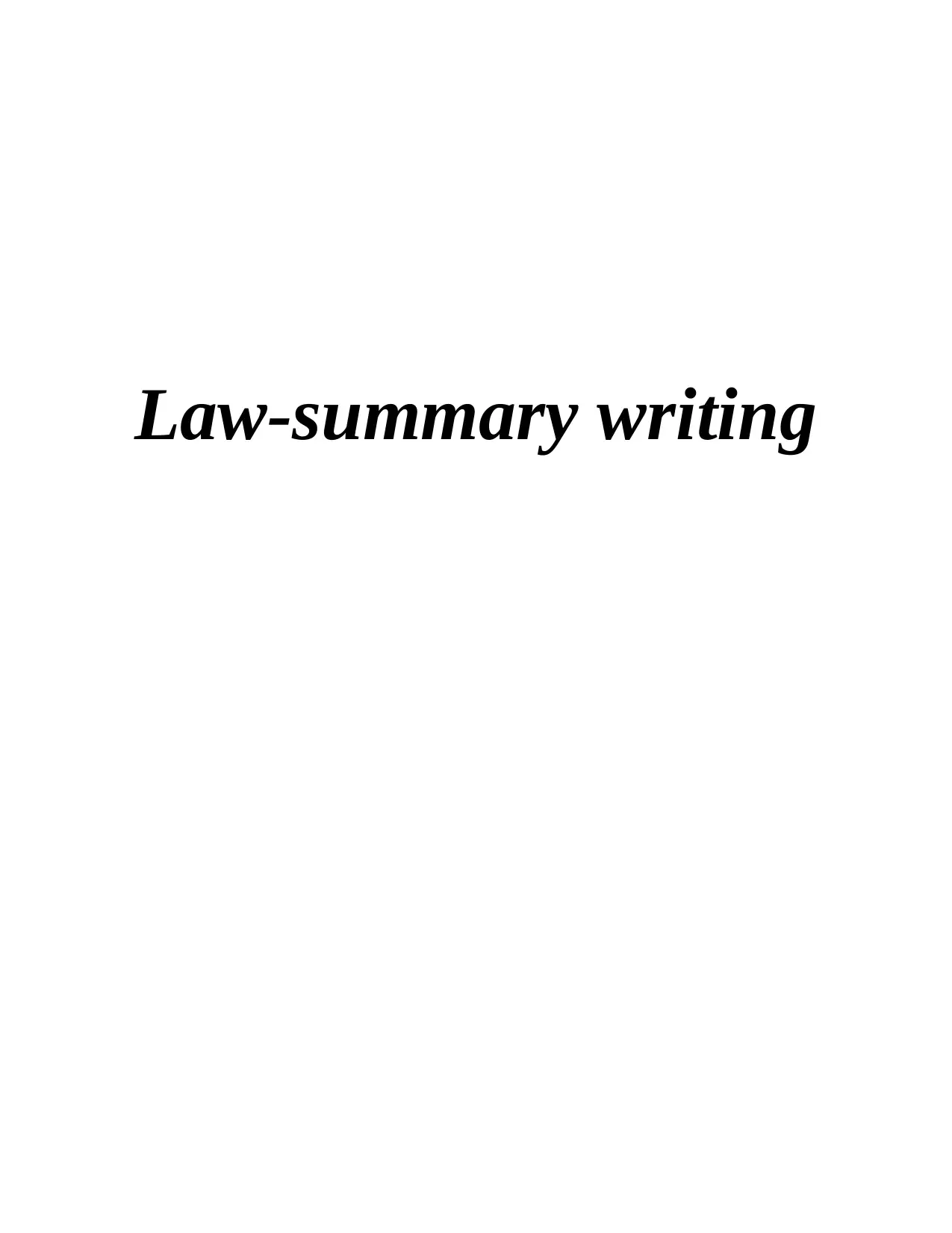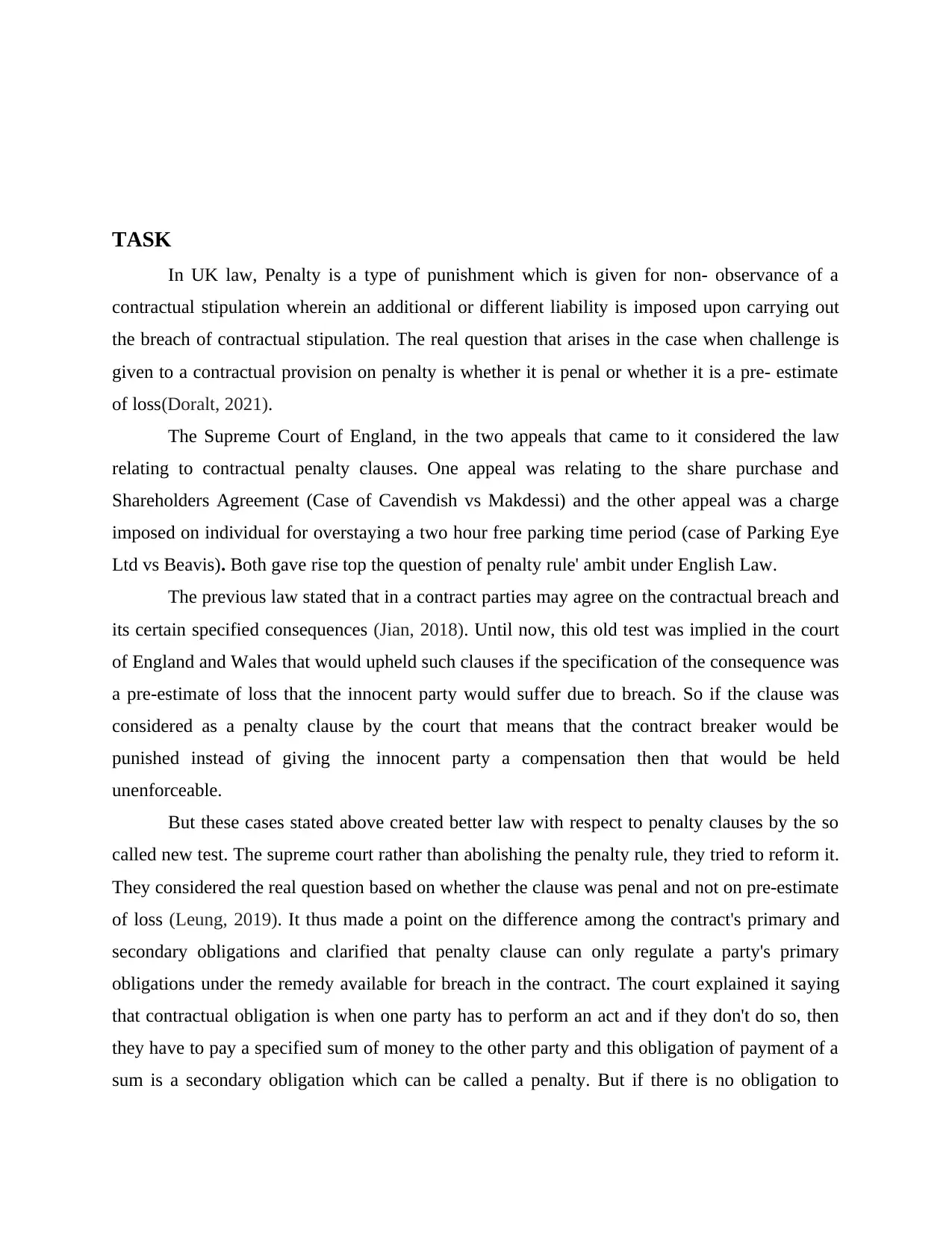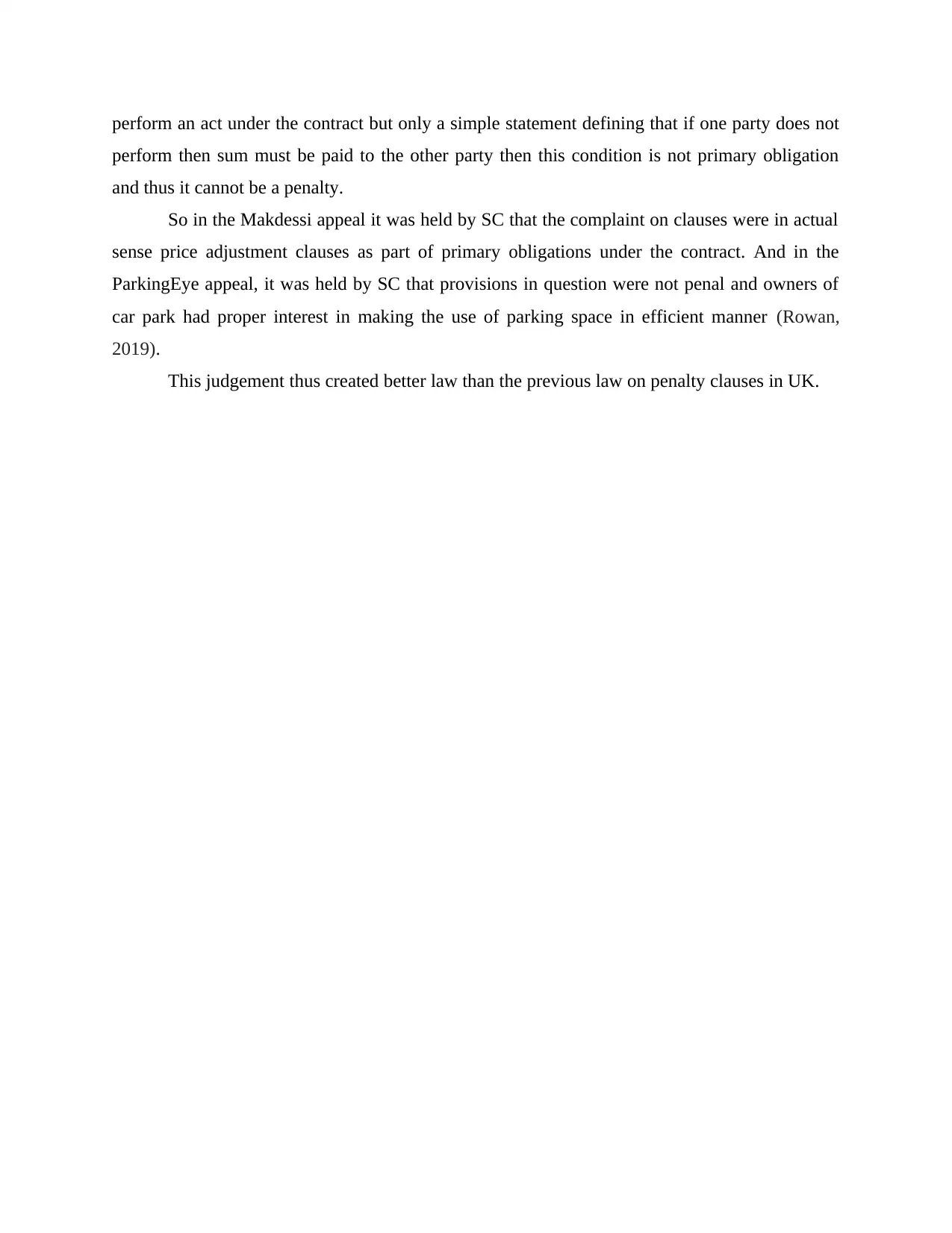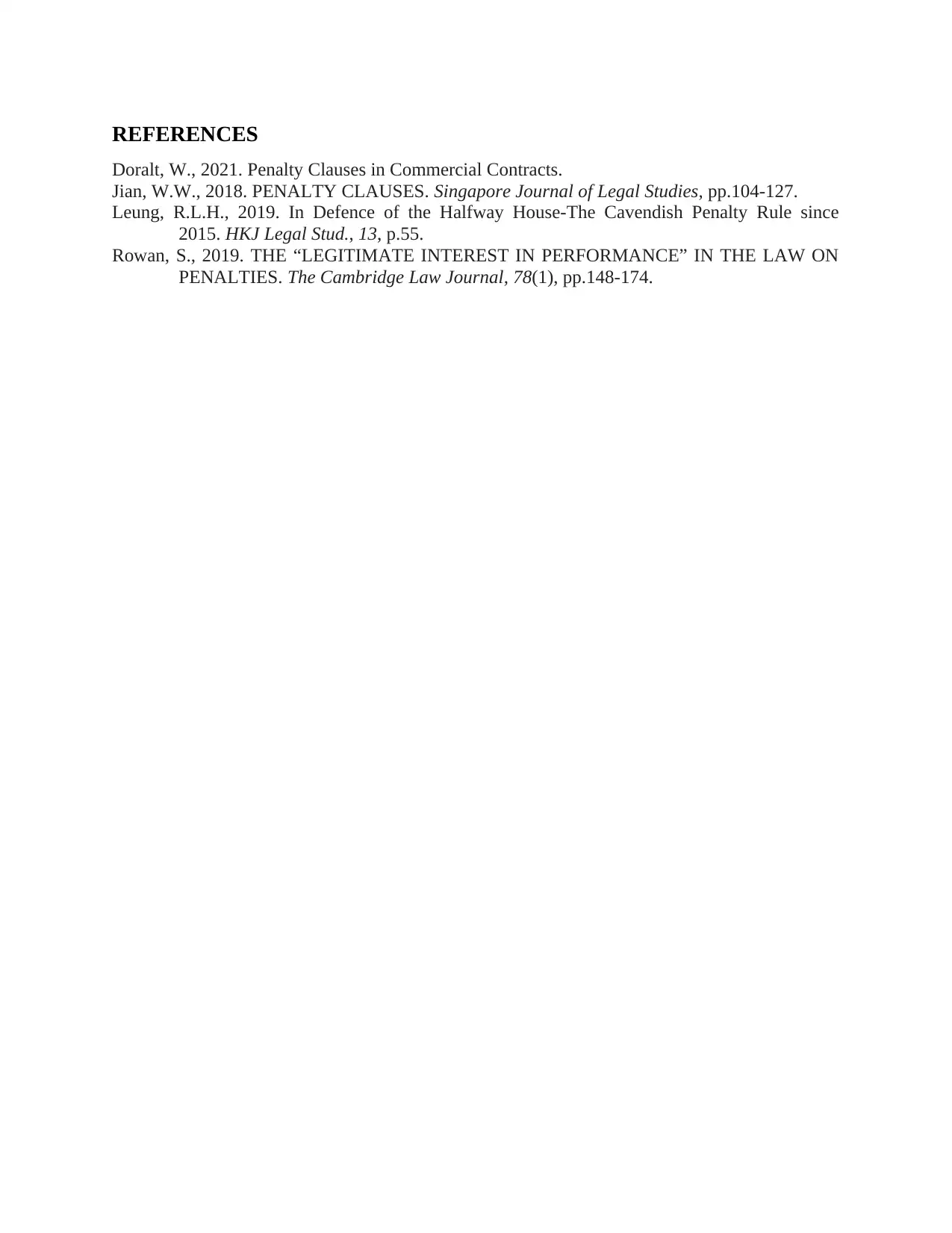Analysis of Penalty Clauses in UK Law: Cavendish vs Makdessi Case
VerifiedAdded on 2023/06/14
|4
|651
|417
Case Study
AI Summary
This case study examines the legal concept of penalty clauses in UK law, focusing on the landmark cases of Cavendish vs Makdessi and ParkingEye Ltd vs Beavis. It delves into the evolution of the law, contrasting the old test of 'pre-estimate of loss' with the Supreme Court's reformed approach. The analysis highlights the distinction between primary and secondary contractual obligations, clarifying that penalty clauses primarily regulate a party's obligations and remedies for breach. The study concludes that the judgments in these cases have refined the understanding and application of penalty clauses in UK contract law, moving away from a punitive approach towards a more nuanced consideration of legitimate interests and price adjustment clauses.
1 out of 4











![[object Object]](/_next/static/media/star-bottom.7253800d.svg)